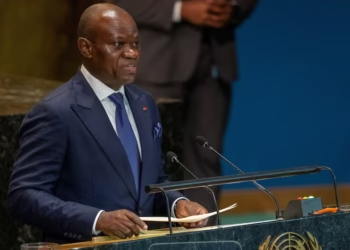Egypt’s universal healthcare coverage is likely to expand given growing government commitment, through the adoption of strategic partnerships and increased pharmaceutical investment, according to Fitch Solutions.
Announcing an increase in public spending on Egypt’s healthcare in the 2022 budget, following prior increases in recent years, Egypt’s Ministry of Finance targeted public spending on healthcare at EGP108.8 billion (US$6.9 billion). This compares to EGP93.5 billion (US$6.0 billion) allocated towards the health sector in 2020, EGP73.1 billion (US$4.7 billion) in 2019 and EGP61.8 billion (US$3.9 billion) in 2018.
“With growing funding towards healthcare, Egypt can concentrate efforts on localising the industry, expanding the coverage and improving the provision of healthcare and boosting the investment climate in a way that effectively contributes to the country’s economic diversification plan, Egypt Vision 2030”.
Fitch
Supported by additional government funding, foreign direct investment and international pharmaceutical cooperation partnerships, Fitch expects Egypt to increasingly leverage its position as a regional medical hub.
Considering this, therefore, Fitch forecasts the number of bilateral trade agreements and strategic partnerships to increase over 2022 and beyond.
Expectations are that this will provide growing opportunities for multinational pharmaceutical firms to expand their presence in Egypt, though a challenging operating environment poses headwinds to greater sector investment, Fitch said.
Alongside this, improving the health of the population is increasingly becoming a priority for Egypt’s government, in line with the UN’s Sustainable Development Goals (SDGs). The government has rolled out a number of initiatives that have been launched in recent months.
For example, Egypt’s Ministry of Health and Population announced that more than 150,000 citizens over the age of 65 have received medical services as part of the ‘Continuous Health Care for the Elderly’ programme since its launch in October 2021.
The programme prioritizes the early detection of the most common health problems of this age group, including key non-communicable diseases such as cardiovascular disease, diabetes, kidney disease, gastrointestinal diseases, and malnutrition.
In addition, Egypt’s government announced plans to send out 46 free of charge medical convoys to remote and deprived areas across the country throughout January 2021 as part of President Abdel Fattah Al-Sisi’s “Decent Life” initiative.
“While we forecast solid double-digit growth in government healthcare spending, the private sector will continue to account for the majority of healthcare spending.
“We expect the value of private healthcare spending to increase at a slightly faster five-year CAGR of 12.5% (10.6% in US dollar terms), growing from EGP225.2 billion (US$14.3 billion) in 2021 to EGP406.6 billion (US$23.8 billion) by 2026…”
Fitch
By this time, government healthcare spending will account for just 30.5% of total healthcare spending, while private healthcare spending will take the majority share of 69.6%, Fitch indicated. Egypt’s overall private sector consumption will be a key driver in the country’s economic growth over the next two years.
“Our Country Risk team are forecasting growth of 5.0% in FY2021/22 and 5.5% in FY2022/23, both of which are above the average annual growth rate of 4.8% in the five years prior to the Covid-19 pandemic”.
Fitch
READ ALSO: We are not Ready to Fight Corruption- Political Scientist





















